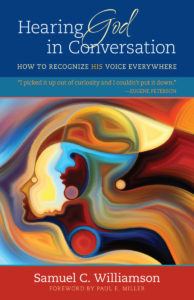I once had a client whose business-gifting outshined the stars of the Harvard Business Review. Yet she scorched everything she touched. Relationships went rancid, projects were poisoned by punitive criticism, and her management style left associates embittered.

We met for lunch a couple times a year for much of the 90’s. Over time, my opinion of her zigzagged from initial awe, to distaste, and finally to pity. These facts emerged:
- She was an identical twin, younger by twenty minutes.
- Although an excellent musician, she played second chair violin; her twin played first.
- She failed to get into medical school so she got an MBA; her sister became a surgeon.
- When her boyfriend came home for Easter, he fell in love with her twin.
A year later that former boyfriend married her identical, twin sister.
What Lights Your Fire?
In the movie Chariots of Fire, someone asks Harold Abrams why he runs so fast. He says, “When that gun goes off, I raise my eyes and look down that corridor, 4 feet wide, with 10 lonely seconds to justify my whole existence.” Eric Liddle says, “When I run I feel God’s pleasure.”
People who appear indistinguishable on the outside (fast, friendly, successful, or moral) are energized by competing powers.
Greatness and saint-ness are not matters of natural degree but matters of supernatural infusion. The “great” dispose themselves to endeavors, whereas great believers gravitate toward God.
It is not a matter of activism versus mysticism; the great go, whereas saints are sent.
Extraordinary heroes draw attention to the person or plan (“Wasn’t Steve Jobs brilliant and isn’t this church-growth plan wise?”) whereas spiritual heroes are ordinary people who are made extraordinary by the life of God inside them.
The worldly genius zigs. God calls us to zag.
Human Sweat
We believers are too easily vitalized by the sweat of human effort. When we worship worldly wisdom—the “Three Keys” to this and the “Seven Principles” of that—we make alliances with Egypt; it tells us to rest in our best.
We “go” when God calls us to “come.” Our plots hamstring God’s plans.
Recently (as if the world isn’t noisy enough), those worldly mystics of mysteriously numbered methods have begun to prefix their magic potions with awe-inspiring modifiers: “Life-changing Keys,” “Mind-blowing Lessons,” and “Staggering Secrets.”
I wonder what their older siblings do.
Relationship as Fuel
Relationships empower us for good or ill. Some connections thrust us into rivalry, enmity, or despair, but there is another connection that supernaturally turns water into wine:
The most important aspect of Christianity is not the work we do, but the relationship we maintain and the surrounding influence and qualities produced by that relationship. That is all God asks us to give our attention to. (Oswald Chambers)
We too have an older sibling who out-performs us in every conceivable measure. But he doesn’t compete with us, he completes us. The only fruit of our lives that matters is produced by the life of God in us.
It is not our gifts that distinguish us nearly as much as the fuel that animates them.
Sam
P. S. To nurture the life of God in us, we need to hear God’s voice. Can hearing God’s voice be normal? Watch this short video (77 seconds) from Coffee Shop Conversations:
[vimeo id=”189867683″]
[button href=”https://www.amazon.com/Hearing-God-Conversation-Recognize-Everywhere/dp/0825444241/ref=cm_cr_arp_d_product_top?ie=UTF8″ primary=”true” centered=”true” newwindow=”true”]Buy Now[/button]
To grow in intimacy with God, we need communication. If you want to nurture that  divine dialogue with God, may I suggest you buy Hearing God in Conversation.
divine dialogue with God, may I suggest you buy Hearing God in Conversation.
Eugene Peterson said, “I picked it up out of curiosity, and I couldn’t put it down.”
Gary Wilkerson wrote, “This is a remarkable book that teaches both how to hear God’s voice in Scripture, and then to hear his voice in every avenue of life. It’s filled with humor, insight, practical tips, and sound theology. I can’t recommend a better guide than Hearing God in Conversation.”


 The Starving Lion
The Starving Lion
Leave a Reply